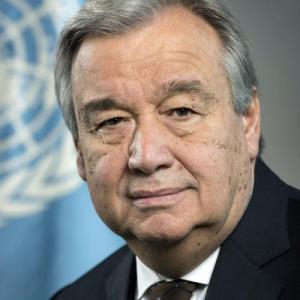Today is a day to remember and pay tribute to the victims and survivors of genocide around the world. It is a day to look back at our collective failure to prevent this crime in the past, and to redouble prevention efforts for the present and the future.
More than 70 years after the adoption of the Convention on the Prevention and Punishment of the Crime of Genocide, the threat of genocide remains in many places around the world. Discrimination and hate speech, an early warning sign of genocide, are on the rise everywhere.
We must do more to promote strong political leadership and decisive action against these dangerous trends. We must do more to fulfill our commitment to free humanity from the scourge of genocide.
I recently visited the Tuol Sleng Genocide Museum in Phnom Penh, Cambodia, where I had the privilege of meeting with survivors of atrocity crimes.
Their moving testimonies are a powerful reminder of the individual suffering, pain and horror of genocide and atrocity crimes.
I call on every Member State to take concrete steps to protect communities at risk, including minorities, and address discrimination and persecution.
States have the primary obligation to prevent genocide, but religious and community leaders, civil society, the private sector, and the media - including social media platforms, play an important role.
On this International Day of Remembrance and Dignity of Victims of the Crime of Genocide, I call on all stakeholders to use every means at their disposal to prevent and end this crime.


